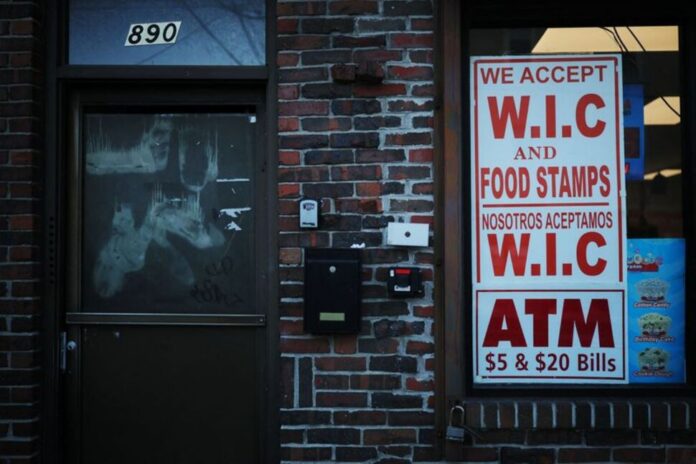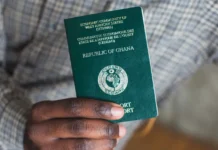(Reuters) – A coalition of Democratic-led states filed a lawsuit on Tuesday to stop President Donald Trump’s administration from suspending food aid benefits starting on November 1 amid the ongoing U.S. government shutdown.
Attorneys general and governors from 25 states and the District of Columbia filed the lawsuit, opens new tab in Boston federal court after the U.S. Department of Agriculture said it would not use $6 billion in contingency funds to pay for Supplemental Nutrition Assistance Program benefits, also known as food stamps.
Democrats and Republicans in Congress have traded blame for the shutdown and for the risk that SNAP benefits, which provide food assistance to more than 41 million low-income Americans, could lapse in November.
The USDA’s shutdown plan had included the potential use of contingency funds for SNAP, but on Saturday the department updated its website to say no benefits would be issued on November 1 as scheduled, stating “the well has run dry.”
The lawsuit argues that the suspension of benefits is avoidable, arbitrary and is being carried out in violation of the Food and Nutrition Act, which requires that “assistance under this program shall be furnished to all eligible households.”
The plaintiffs, who are led by the attorneys general of Massachusetts, California, Arizona and Minnesota, say a failure by the federal government to issue monthly food assistance payments as a result of a lapse in appropriations would mark a first in the SNAP program’s 60-year history.
The states are seeking to have a judge move rapidly to force the USDA to use available contingency funds for November SNAP benefits and ensure that millions of families do not lose access to food assistance in the coming days.
“Millions of Americans are about to go hungry because the federal government has chosen to withhold food assistance it is legally obligated to provide,” New York Attorney General Letitia James said in a statement.
The Department of Agriculture did not immediately respond to a request for comment.
SNAP benefits are available for Americans whose income is less than 130% of the federal poverty line, or $1,632 a month for a one-person household, or $2,215 for a two-person household in many areas.
SNAP benefits are paid out on a monthly basis, though the exact date payments are distributed varies among states, which are responsible for the day-to-day administration of the benefits.
The shutdown also threatens benefits for nearly 7 million participants in the Special Supplemental Nutrition Program for Women, Infants, and Children, known as WIC.
In the absence of federal action, some states have stepped in. California and New York said they would send money to food banks, while Virginia declared a state of emergency to fund November benefits.



















